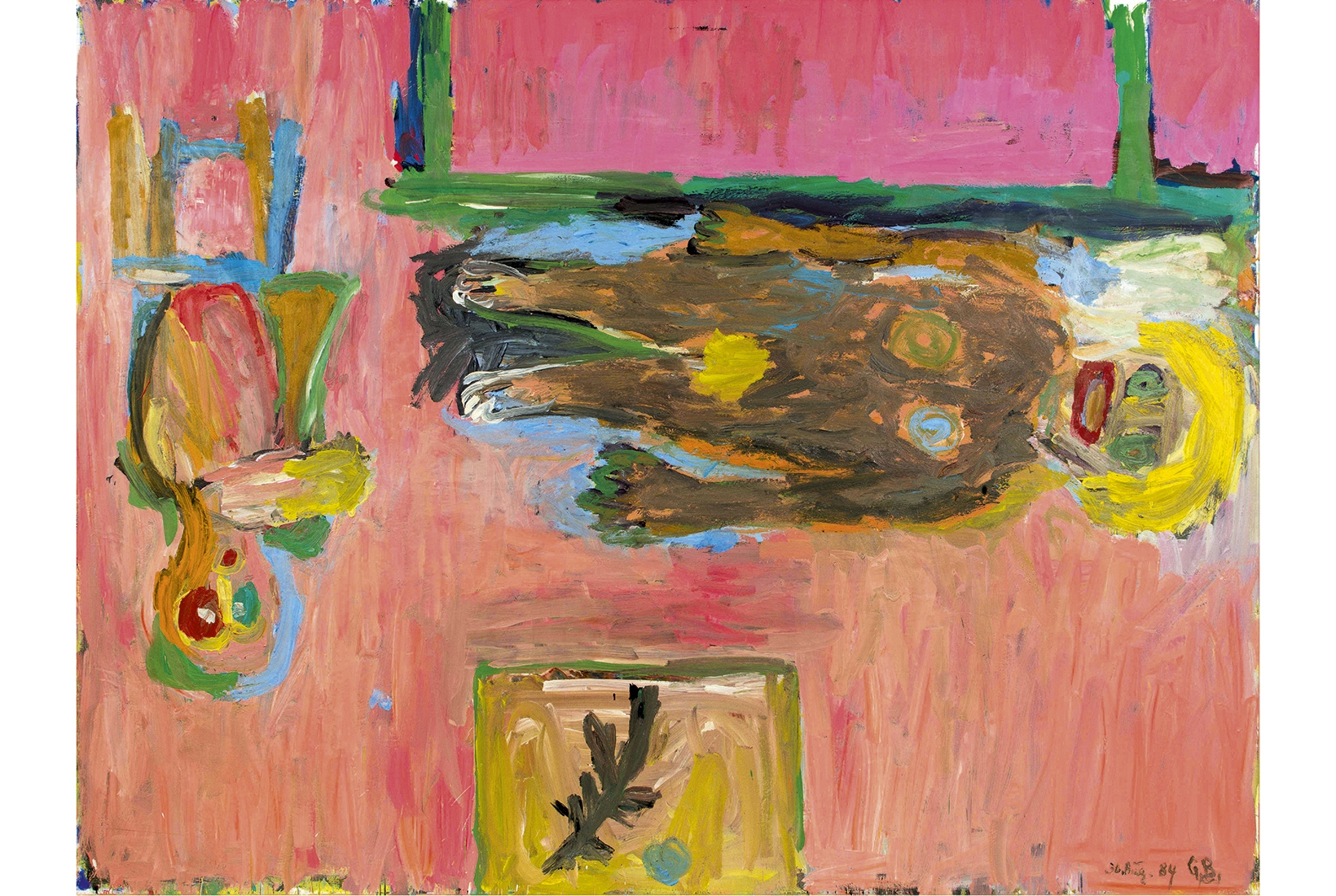The hand is one of the first images to appear in art. There are handprints on the walls of caves in southern France, Indonesia and Argentina, made up to 50,000 years ago, which, although no doubt an illusion, seem to be waving at us across a vast gulf of time.
The gigantic paintings of golden hands by Georg Baselitz at White Cube Mason’s Yard don’t quite do that, but the effect is still solemn and primeval. They dangle in front of you, fingers extended downwards, cut off at the wrist, each one the size of a whole body and glittering on a background of brownish black. There are also some drawings and sculptures of hands on view, but the star turns are the big canvases. They look like altarpieces dedicated to a cult of the hand and what it can do.
Baselitz is of course one of the best known and, at 82, senior of living painters. And one of the points about painting, as opposed to more mechanical media, is that the artist’s manual dexterity is crucial to the result. Admittedly in this case Baselitz needed his arms too as he first painted each hand on one canvas. Then he pressed it on to another using a broom and — hey presto! — a monumental, one-off painted print combining the creative power of human craft and the lovely, glutinous medium of paint. Thus Baselitz actively encouraged beautiful splatters and splodges while just, you might say, by his fingertips retaining the recognisable shape of a thumb and four digits.
It seems possible that at the moment painting is yet again making a resurgence
At Michael Werner Gallery, 22 Upper Brook Street, there’s a sizeable survey of earlier work by Baselitz, some dating back to the 1960s. Its title, I Was Born into a Destroyed Order, is almost literally the case since he was brought up in a little village a few miles from the burnt-out ruins of Dresden.
Post-war Germany must truly have seemed all upside-down. Of course, Baselitz is still best known for his device of doing the same thing to his pictures, so his figures’ feet are often upmost and the sky below. But this device is more than a gimmick, though it sometimes seems like one.
It’s a way of disorientating us and redirecting our attention. Sometimes the reversal hints at dark meanings. The animals in ‘Dog and Hare Downward’ (1967) seem to be hung up by their heels for slaughter. And at all times it forces you to look at the rough, vehement brushwork first, rather than at the subject. He’s saying: look at the paint!
Baselitz is one of the generation of artists who emerged in the 1960s, and kept painting triumphantly alive through decades during which it was regularly declared dead. Another, though a very different creative personality, is Bridget Riley.
One distinction between them is that Riley isn’t interested in handmade marks at all. Indeed, she has long insisted that it makes no difference whether her paintings are executed by assistants, which is a way of saying that it’s the colours and contours that matter, not textures or brush strokes. That gives a special status to her prints of which a retrospective until this year is on view at the Cristea Roberts Gallery, held to mark the publication of a catalogue raisonné.
Obviously Riley has an extraordinarily delicate sense of colour and placement. She is renowned for stipulating the precise shade of white on which her works are to hang, and on occasion changing her mind at the last moment and having the whole gallery redecorated in a slightly different tone and hue.
Her work depends on such precision and fine discrimination. It is the ability to make such judgments, more than the razzle-dazzle of her early black and white works, that makes so many of these prints beguiling, even lyrical.
They are abstract but still somehow retain a connection with the external world — not to any actual object but to the disembodied essence of shimmering light, rhythmic movement and dappled shadow. The show includes a brand-new wall painting, entitled ‘Running Jumping Standing Still’, 2020, which is a brief list of just some of the things Riley can make forms and colours do.
As other Spectator writers have noted, it seems possible that at the moment painting is yet again making a resurgence. Two intriguing younger painters are on display at David Zwirner, 24 Grafton Street. Josh Smith’s recent work is an unexpectedly jolly celebration of the streets of Brooklyn, where he lives and works, emptied by lockdown yet filled with colour. Upstairs are works by a Zimbabwean painter, Portia Zvavahera, who might be described as a looser, freer African successor of Klimt. Her pictures are filled with richly textured pattern, but at the same time spectral and haunted.
It is tens of thousands of years since those handprints were made in the caves. In the interim, numerous media have come and gone, but somehow painting keeps on renewing itself, time after time.







Comments